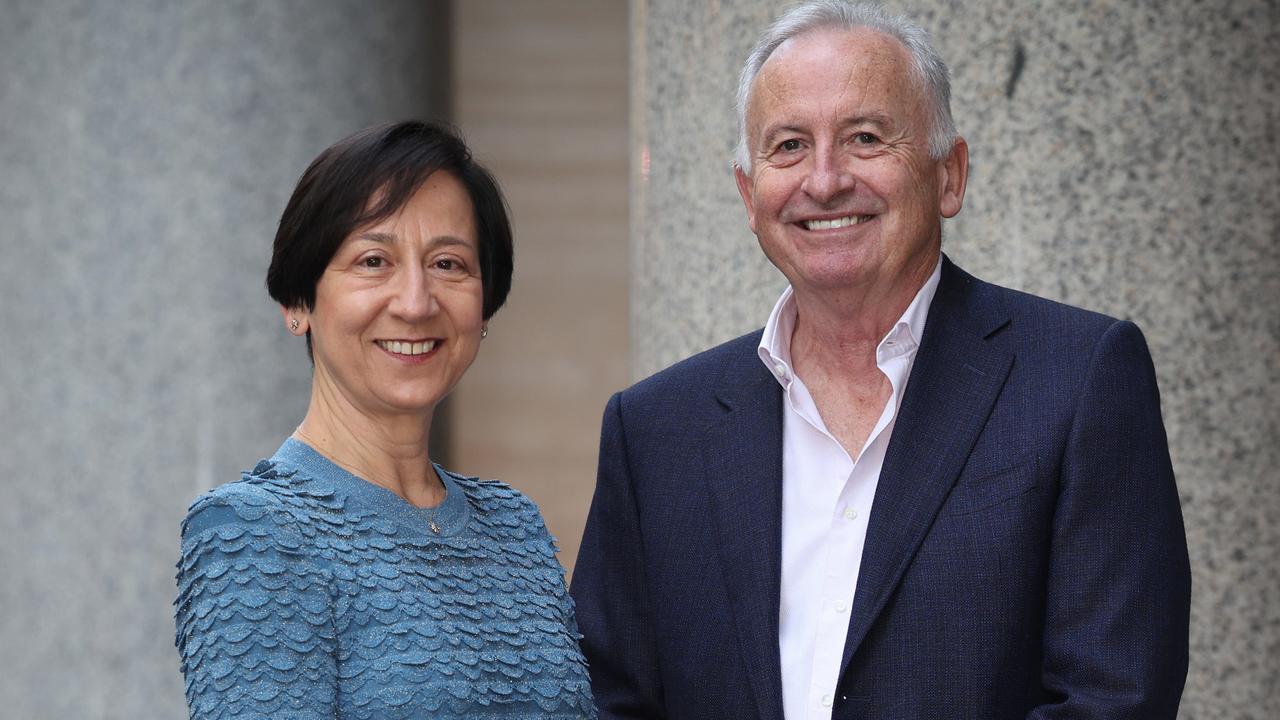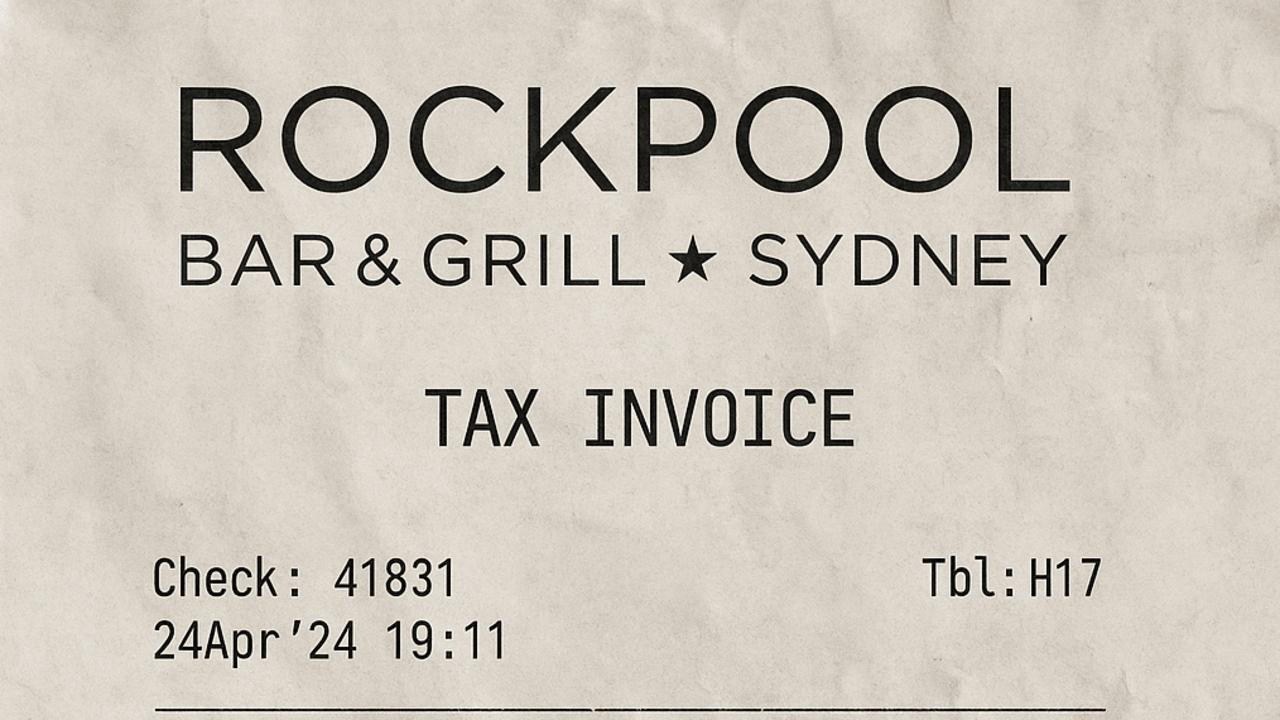It’s unfathomable ANZ’s board, CEO didn’t deal with issue of charging fees to dead customers
The royal commission’s findings should have served as a wakeup call but in reality, at ANZ while the bank’s top brass said all the right things, they didn’t adequately heed the warning.

Business
Don't miss out on the headlines from Business. Followed categories will be added to My News.
Commonwealth Bank and AMP were in April 2018 singled out as the poster children, in a badly tarnished financial services sector, for charging fees to dead customers.
It was abhorrent and disturbing behaviour that was apparent across the sector and went on for years. It should have served as a wakeup call to all other companies in the industry, including ANZ.
In reality at ANZ, while the bank’s top brass said all the right things at the time, they didn’t adequately heed the warning.
Therein lies a problem for Melbourne-based ANZ as it navigates its latest regulatory skirmish that may end up in legal action depending on what course of action the corporate regulator embarks on in 2025.
The Australian on Tuesday revealed ANZ was again in the Australian Securities and Investments Commission’s sights – with the latest furore surrounding its retail bank, and claims it incorrectly slugged dead customers’ accounts with fees and failed to fix glaring system deficiencies in a timely way.
The alleged and shocking behaviour by ANZ relates to fees the bank did not intend to charge to deceased estates between mid-2019 and September 30, 2023. That’s after Ken Hayne released his final report into misconduct in the banking, superannuation and financial services industry in early 2019.
Given the backlash, consequences and billions of dollars paid out by the financial services sector in the wake of the royal commission it is unfathomable that it can be in any way acceptable to ANZ’s board this matter wasn’t properly dealt with.

Outgoing chief executive Shayne Elliott took ANZ’s top job in early 2016 and is well versed on the issues raised at the Hayne royal commission, while now retail banking boss Maile
Carnegie joined ANZ that same year as group executive for digital banking.
She didn’t take the helm of the retail bank until 2022, meaning some of the issues predate her tenure. Carnegie took over from Australian retail and commercial bank boss Mark Hand, when the divisions were separated, and he departed.
It will be interesting to see how new ANZ chief executive Nuno Matos – a former HSBC and Santander banker who starts in the role in July – approaches ANZ’s regulatory issues when he finally gets his feet under desk following his gardening leave.
This ANZ issue has been brewing under the surface but is set to come to a head in early 2025 when ASIC chairman Joe Longo decides on a course of action.
The Banking Code Compliance Committee sanctioned ANZ in July over its treatment of dead customers’ accounts, noting it breached obligations. The BCCC pointed out that ANZ could have moved more quickly to rectify issues relating to dead customers’ accounts, and also noted the emotional distress involved for families caught up in these matters who may still be grieving loved ones.
“Deceased estate representatives may also experience further distress upon receiving belated remediation letters,” the BCCC said at the time.
“ANZ has had ample time to address these concerns and ensure it meets code obligations and customer expectations. The specific issues central to our investigation were first self-identified by ANZ in early 2022.”
The BCCC quietly referred the matter to ASIC and the prudential regulator.

The royal commission should have, however, prompted an immediate audit by banks and other financial services companies into how they handle the accounts of deceased customers to ensure they were not incorrectly levying charges. These audits should also become a regular part of good compliance practices, given the damage these issues inflicted on the sector and its already low standing with the public.
Neither the industry nor customers want to hear the types of case studies outlined in the royal commission again.
In several examples in 2018, the royal commission was told advisers within CBA’s financial planning unit went on charging fees to customers who they were aware had died. In one case, a dead customer’s accounts kept incurring advice service fees for more than a decade after their passing.
In another instance, a CBA advice customer died in 2007 and the bank was contacted by family in 2013 which still didn’t lead to action being taken to stop advice fees being charged. An internal CBA report referenced in the royal commission recommended giving the adviser in question a formal warning as a result.
AMP kicked off an investigation in 2018 after the controversial practice of charging dead customers became a hot-button issue.
The issues culminated in AMP entities last year being ordered by the Federal Court to pay $24m for breaches of the law relating to unconscionable conduct.
AMP and related entities received more than $500,000 in insurance premiums from the superannuation accounts of dead customers, according to ASIC. The AMP entities also reaped more than $100,000 in advice fees from deceased customer accounts.
Westpac and National Australia Bank also had issues, aired at the royal commission, relating to charging dead customers’ accounts.
Ken Hayne’s final report and the relevant sections on fees for no service should be re-read by ANZ’s board and its executives as they navigate the live ASIC investigation.
“If the client had died and the taker had been told and had recorded that the client had died, there could be no ongoing service given and the taker’s records showed that there could be none given,” Hayne said in the report.
“I consider that it is open to a jury to conclude, beyond reasonable doubt, that, in either of the cases described the taker, in the course of its carrying on a financial services business in this jurisdiction, engaged in conduct in relation to a financial service that was dishonest according to the standards of ordinary people and that the conduct was known by the taker to be dishonest according to the standards of ordinary people.”
More Coverage
Originally published as It’s unfathomable ANZ’s board, CEO didn’t deal with issue of charging fees to dead customers









